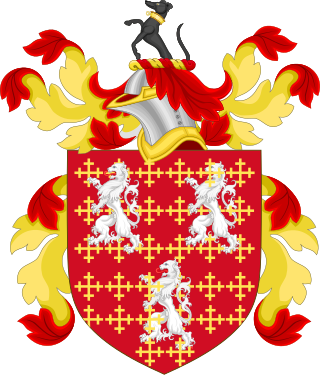Related Research Articles

Major Eleazer Lusher was a politician and military leader from Dedham, Massachusetts.
Lieutenant Joshua Fisher was a politician from Dedham, Massachusetts and a member of the Massachusetts House of Deputies. He was a blacksmith, saw mill owner, and tavern keeper.
Eliphalet Pond (1704-1795) represented Dedham, Massachusetts in the Great and General Court.
Isaac Bullard represented Dedham, Massachusetts in the Great and General Court. He was also town clerk for a total of three years, having first been elected in 1784. He was also elected five times as selectman, beginning in 1773. Bullard was the first treasurer of Norfolk County, serving from 1793 to 1808.
John Worthington Ames represented Dedham, Massachusetts in the Great and General Court. He was the son of Fisher Ames and the brother of Seth Ames. He never married and always lived with his mother.

Captain Timothy Dwight (1629–1718) represented Dedham in the Great and General Court of Massachusetts and was the progenitor of the Dwight family.
John Hunting was Ruling Elder of the First Church and Parish in Dedham.
John Kingsbury was an early resident of Watertown, Massachusetts and a founder of Dedham, Massachusetts. He represented Dedham in the Great and General Court in 1647.
John Aldis was a representative to the Great and General Court of colonial Massachusetts in 1683 and served for 12 years on the Board of Selectmen in Dedham, Massachusetts.
Nathan Aldis was an early settler of Dedham, Massachusetts who served on that town's Board of Selectmen in 1641, 1642, and 1644. He served in a variety of other positions in the town and served as a deacon at First Church and Parish in Dedham. He signed the Dedham Covenant.

Broad Oak also known as Broad Oaks, was an estate in Dedham, Massachusetts owned by Edward Richards and his family, and then later Ebenezer Burgess and his descendants. Today the name lives on as part of the Broad Oak Farm which is located on part of the original estate.

John Gay was a prominent early settler and selectman in Dedham, Massachusetts.
Ralph Day was an early settler and selectman in Dedham, Massachusetts. Day emigrated from England to the Massachusetts Bay Colony in 1630.

William Avery represented Dedham, Massachusetts, in the Great and General Court. He was also a selectman, serving eight terms beginning in 1664.
John Farrington was an early American colonist. He settled in Dedham, Massachusetts and served as a selectman there. When the town of Wrentham separated, he became one of the first settlers there. Later, he would become one of the founders of Deerfield, Massachusetts. His wife, Mary Bullard, was the cousin of Quentin Stockwell's wife Abigail. The Stockwells were also original settlers of Deerfield. He was the ancestor of Representative John Farrington.

Rev. William Clark was an Anglican priest from Massachusetts.
William Montague was an Anglican cleric at Old North Church in Boston and St. Paul's in Dedham, Massachusetts.

St. Paul's Church is an Episcopal Church in Dedham, Massachusetts

Temperance Hall was an assembly hall in Dedham, Massachusetts associated with the temperance movement. It previously served as the Norfolk County Courthouse.
Richard "Dick" Woodward was an American tavern keeper. He was a patriot and soldier in the American Revolution, played host to the convention that adopted the Suffolk Resolves, and a leader of Dedham, Massachusetts.
References
- ↑ Worthington 1827, p. 79-81.
- 1 2 Alden, John Eaton; Eaton, Daniel Cady (1900). Eaton Family of Dedham and the Powder House Rock. p. 16 . Retrieved 17 November 2019.
- ↑ History, Charter and By-laws: List of Officers and Members Together with a Record of the Service Performed by Their Ancestors in the Wars of the Colonies. Society of Colonial Wars, Illinois. 1897. p. 59. Retrieved 17 November 2019.
- 1 2 Hurd 1884, p. 92.
- 1 2 3 Bullard, E.J. Other Bullards, a genealogy. pp. 3–. ISBN 978-5-88295-570-9 . Retrieved 17 November 2019.
- ↑ Hurd 1884, p. 29.